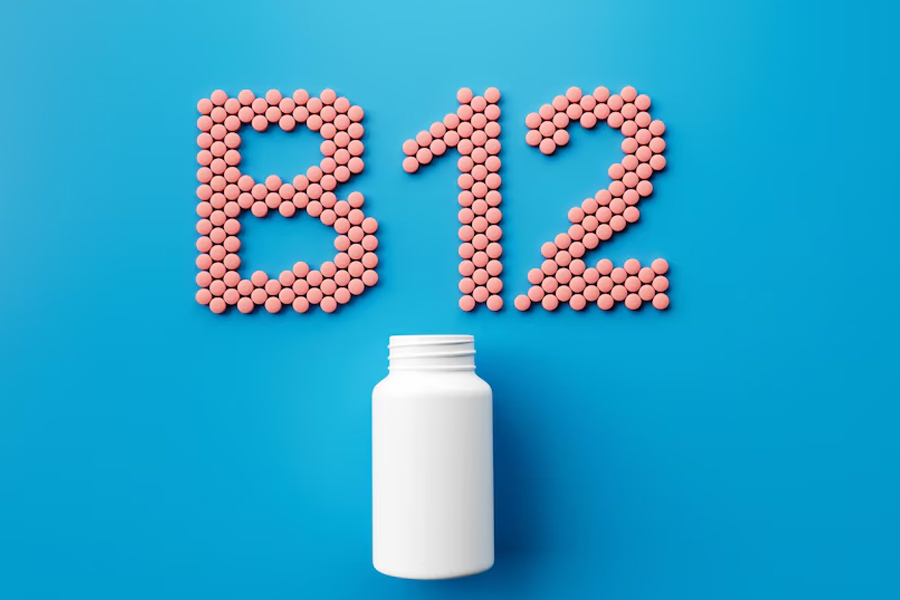
Nutrient deficiencies are often overlooked but can be at the root of various symptoms and health problems. Among these, vitamin B12 deficiency is particularly concerning, as it plays an important role in Red Blood Cell (RBC) formation, nerve function, and DNA synthesis.
Table of Content:-
In India, vitamin B12 deficiency affects at least 47% of the population, while only 26% are considered sufficient, according to a 2019 study published in the Indian Journal of Endocrinology and Metabolism. Therefore, it is crucial to not only identify the condition but also address it on time to avoid serious complications.
Also Read: Skin Signs of Vitamin B12 Deficiency: Expert Shares What to Watch For
Factors That Lead To Vitamin B12 Deficiency

In an interaction with the OnlyMyHealth team, Dr Preeti Nagar, Dietitian at NIIMS Medical College and Hospital (Noida International Institute of Medical Science), says, “B12 plays a crucial role in maintaining overall health. It is responsible for supporting the development, myelination, and function of the central nervous system. Vitamin B12 is required for the formation of healthy RBCs and DNA synthesis. It is also essential in breaking down fatty acids and amino acids to produce energy and is required to support mental ability and overall brain function.”
One of the common causes of vitamin B12 deficiency is dietary insufficiency, which occurs when you do not get enough B12 from diet itself. Other factors that contribute to the condition include impaired digestion, toxin exposure, and some medications.
Additionally, vegans, or people who don’t eat meat, fish, and dairy products, are at higher risk of B12 deficiency. Those who are prone to heartburn issues and are on medications like metformin and anti-seizure drugs are at the edge of B12 deficiency, adds Dr Nagar.
Common Symptoms Of Vitamin B12 Deficiency
The common symptoms of vitamin B12 deficiency are:
- Fatigue and weakness
- Confusion
- Tingling and numbness in their hands and legs
- Sore gums
In severe cases, seizures, depression, memory loss, nerve damage, megaloblastic anaemia, and dementia can also occur.
Why Lack Of Vitamin B12 Causes Sore Gums

Dr Nagar says vitamin B12 deficiency can significantly affect gum health. This nutrient is essential for repairing tissues, including gums, and maintaining healthy blood cells. According to the dietitian, without enough B12, gums become weaker and more prone to inflammation and infection, increasing the risk of periodontitis—a gum disease that can lead to gum shrinkage and tooth loss.
The deficiency also reduces oxygen supply to the gums, slowing their healing and causing red, swollen, and bleeding gums, as well as frequent mouth ulcers. Ensuring adequate B12 intake through diet or supplements is crucial for healthy gums.
Also Read: How Does Vitamin B12 Deficiency Affect Children: Symptoms To Note
Diet And Supplements For Tackling Vitamin B12 Deficiency

Incorporating foods that contain vitamin B12 can help with vitamin B12 deficiency.
Non-vegetarians can include lean red meat, chicken, fish (catfish and salmon), seafood (clams and oysters), eggs, and beef liver.
Vegetarians can consider dairy products like milk, cheese, and yoghurt as good sources of vitamin B12.
Mainly, vegan diets lack vitamin B12 as they avoid dairy products. They can include fortified cereals, vegan milk substitutes, or B12 supplements to reduce the risk of deficiency.
Also watch this video
How we keep this article up to date:
We work with experts and keep a close eye on the latest in health and wellness. Whenever there is a new research or helpful information, we update our articles with accurate and useful advice.
Current Version